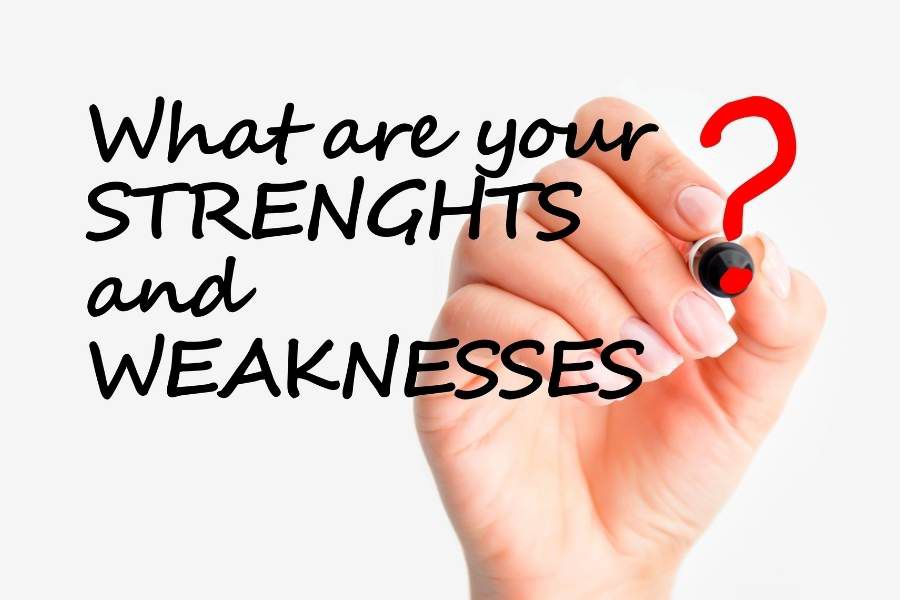Top HR Interview Questions For Freshers And Experienced Professionals
Learn how to answer the HR interview questions and answers for freshers and experienced professionals and confidently sail through the job interview process.
So you sent in your resume and have been called in for a job interview. Congratulations! It’s time to prepare for your personal interview so you can ace it with confidence.
The personal interview is usually a stressful time for job seekers, even the most confident ones since the success of your interview depends on your personality and ability to answer questions.
The prospect of having to answer personal interview questions tends to trigger our insecurities and anxieties and make us question if we’re good enough.
However, there’s usually a specific set of HR interview questions for freshers and experienced professionals that recruiters tend to ask during a job interview.
Knowing these HR questions will help you practice your answers before the interview so you can build confidence and answer the HR round questions without hesitation and sail through the job interview process.
HR Interview Questions And Answers
In this article, we will help you understand how to answer the HR interview questions for freshers and experienced job seekers that hiring managers tend to ask.
Here are some of the most common HR questions and answers you can give in response to them during the interview process.
1. Tell me more about yourself
This is one of the most common job interview questions that the recruiter will ask you. This allows the HR manager to understand how you see yourself while you speak about yourself in your own words.
Knowing how to introduce yourself in an interview is a very important part of the interviewing process as it gives the recruiter their first impression of you.
It is not only a way to assess your confidence and self-esteem, but also to understand your background, and the way you think about yourself and perceive yourself.
Your self-introduction for interviews should not include a repetition of what is in your CV or resume. Rather you should go beyond the information in your CV when you introduce yourself by sharing some of your most important life experiences.
Your personal experiences and the way you describe them will give the recruiter some insight into you the way you think and the way you deal with life experiences, so don’t make it boring by reciting a long list of events.
There’s no need to tell a long story in your interview introduction - just focus on the highlights of the life-changing events you experienced and share the lessons you learnt from them.
For instance, if you were an army brat, you could talk about having to change schools every few years, and how this helped you learn to make new friends wherever you went, which made you more adaptable and build resilience along the way.
This is something you can rehearse well before the interview, so it's good to take some time to think about this, understand what makes you tick, and figure out how to put it into words so you can present yourself in the best light.
This is also where you can talk about your volunteering experiences, your passions, your life goals, and any challenges or disabilities that you may have overcome in the course of your life.
As you will probably have to give a self-introduction in English in interviews, rehearsing what to say in advance will help you build confidence so you don’t fumble when the hiring manager says, tell me something about yourself.
Practice your self-introduction in English for interviews in front of the mirror as it will also help you notice and be more mindful of body language mistakes you may be unconsciously making that convey nervousness when you introduce yourself in interviews.
If possible, ask a career counsellor to help you work on your introduction in English and point out any areas for improvement. You can also do a free online personality development course to help you develop better self-presentation and communication skills in interviews.

2. What are your hobbies?
Another common question that interviewers tend to ask is, “What are your hobbies?” This helps them understand the kind of activities you enjoy and whether they are related to what you do at work.
When you answer this question be as truthful as possible. It does not help to make up a hobby that you’re not interested in. Focus on the things that you’re really passionate about and that you enjoy doing in your spare time.
If possible, steer clear of mentioning the most common hobbies, like reading and watching TV, that most people participate in. Instead, talk about the hobbies and skills that are unique to you and that not everyone may be interested in.
For instance, if you like crafting, painting, pottery, or woodcraft and you’re pretty good at it but have never pursued it as a profession, tell them about it. You never know when your passion for art or crafts might be of interest to an employer.
Do you love to play a musical instrument, or dance or sing? Are you passionate about environmental issues? Do you like to volunteer with an organisation in your spare time? Do you love animals? Do you have pets?
Talk about your hobbies and interests in a way that your recruiter can feel the depth of your passion.
3. Why should you be hired for this role?
Another question that interviewers tend to ask is, “Why should we hire you or why are you the right candidate for the job?” If you know enough about the job that you’re applying for, you should be able to answer this question with confidence.
If you’re a fresher, you can answer this question by expressing your love of learning new skills, as this is one of the top future work skills that hiring managers look for.
Remember that past academic performance is not necessarily an indicator of good performance in the workplace. Instead, focus on the results you’ve created for your past employers.
If you’re an experienced professional, you can talk about the qualities and experience you can bring to the job and how you can help create results for your employer.
It works even better if you have some data or statistics to share about your past performance, as this will help build confidence in your abilities. If you’ve completed an internship, consider this an added advantage as it will indicate your interest in your field of expertise.
Always be positive in your assessment of your own abilities. This is not the time to talk about your weaknesses. Focus on your capabilities and how you can add value to the organisation.
Also talk about any additional certifications you may have obtained beyond your basic academic qualifications, as this shows initiative and willingness to learn new things - a very valuable future work skill.
If you’ve completed any courses to learn soft skills, refer to them in answer to these HR questions. As an experienced professional, you can talk about your leadership abilities if any, or your ability to focus on tasks for a long period of time, if that is what the job description requires.
In reply to these HR questions, you can also share testimonials or recommendations you may have received from previous employers, as this is concrete proof of your competence and the fact that you have good relationships with your previous employers.
4. Why do you want to work here?
The next question the recruiter may ask you is, “Why do you want to work here and what do you know about this company?”
To answer this question, read up about the company before you go for the interview. Besides the company website, you should also read any press articles on the company, reviews on Glassdoor, and any mentions on social media.
Check out the company's social media profiles to understand their focus and the way they like to present themselves. Make special note of the wording they use in their online communications, and if possible, use the same words when you tell the recruiter what you know about the company.
If you can pick out a specific aspect about the company that stood out to you in its online communications, you can make that the reason you want to work with them. This will set you apart from the rest of the job candidates because few of them will have taken the trouble to do this.
In fact, if you notice a specific problem that a company is facing and have a solution to their problem, you can mention that as the reason you want to work with them.
That will grab their interest even more because it means you’ve taken the initiative to understand their pain points and come up with a solution for them.

5. What drives or inspires you to come to work every day?
Another question that the recruiter may ask you is, “What drives or inspires you to come to work every day?”
This is your chance to shine because you can set yourself apart from other candidates by talking about your passions or achievements at work that gives you joy, however small they may be.
For instance, you can share about the satisfaction you find in helping people at work find solutions to their problems.
If you’re interviewing for the position of a software developer, for example, you could talk about the joy you feel when you see how your software is helping people solve their everyday problems.
If you’re a real estate agent, you could talk about the joy and satisfaction it gives you to help a young couple or family find the house of their dreams.
Whatever the reason you find inspiration or satisfaction in your job, be honest and state it clearly and with emotion so that the recruiter can feel your authenticity.
Because it's not your words, but how you say them, and the emotions behind them, that will move people to believe in you.
It's not your words, but how you say them, and the emotions behind them, that will move people to believe in you.
6. What salary do you expect?
The next question you may have to answer is, “What salary do you expect?” If you’re a fresher, it's best not to quote a specific amount as a salary, even if you know what a fresher in your industry gets.
One of the reasons is because you don't want to make it seem like money is the only reason you want the job.
Although you should expect a reasonably good salary, always leave room for negotiation, especially if you’re really interested in the job. You can always renegotiate the salary once you’re settled in your work and your employer sees your value.
If you’re an experienced professional moving to another company with the expectation of a higher salary, it's best to state this clearly as the primary reason you’re looking for a career change.
Although this can be risky, you can help the recruiter understand the value and benefits that you will bring to the job as an experienced professional in your field, and the time and money that the company will save by not having to train someone new.
7. How long do you plan to stay with us?
The next question the recruiter may ask is, “How long do you plan to stay with us and where do you see yourself in 5 to 10 years?” It's a good idea to think about this question before the interview and contemplate your answer carefully.
Remember that most companies want to know if the investment they make in their employees will pay off, at least in the short term, and few organisations are willing to hire people who jump from job to job.
If you cannot think of a suitable answer to this question, you can go general and talk about how much the workplace has changed in the last few years and the fact that you like to stay flexible and adapt to upcoming technological advances.

8. What are your strengths and weaknesses?
Many recruiters will also ask the question, “What are your strengths and weaknesses?” While it is easy for us to talk about our strengths, it is not as easy to share our weaknesses.
When you do mention your weaknesses, it is important to clarify how you’re dealing with them. For example, if you’re not a people person, mention it and talk about how you’re trying to develop better interpersonal skills.
Even when you do mention your weaknesses, don't be self-deprecating. False humility does not come across as authentic. When you mention your weakness, also mention the steps you’ve been taking to overcome it so that it does not affect your job performance.
In some positions what we may perceive as a weakness may actually be exactly what is required for the job. For instance, the ability to work in isolation for long periods may be considered an advantage in some jobs, whereas excellent people skills may be seen as an essential job skill in a sales profession.
Be aware of what is required in the job description and present your strengths and weaknesses accordingly.
9. Can you work under pressure and meet deadlines?
Depending on the job, the recruiter may also ask whether you have the ability to work under pressure and meet deadlines in a fast-paced environment. This is a question you need to answer honestly.
If you do not deal well with stress and prefer a more sedate job, it's best to be clear about it at this point instead of overstating your abilities to cope. If you’re learning ways to deal with stress, you can mention the steps you’re taking to improve.
10. What environment are you comfortable working in?
Another question that some recruiters may ask during the HR interview is, “What environment are you most comfortable working in?” Today, this is a very relevant question because of the growth of remote work.
While many people are comfortable working remotely, others may not prefer to do so, especially if their home environment does not allow them to work efficiently or productively.
The work environment also affects people with different personalities in different ways. While introverts like a quiet environment, extroverts may prefer an environment with more energy.
Be honest about what sort of environment you prefer and which environment you’re most productive in. If you mislead the recruiter into thinking that you can thrive in all environments, it may lead to a mismatch in the work culture in which you are placed.
After all, the idea is not just to find a job, but to find the right job for your skills, aptitude, and personality.
The idea is not just to find a job, but to find the right job for your skills, aptitude, and personality.
11. What was the most challenging decision you’ve had to make?
When a recruiter asks you the question, “What was the most challenging decision you’ve had to make?” they are usually trying to assess your ability to think for yourself, your decision-making abilities, and how you deal with challenges that come your way.
You can share an experience from your life that demonstrates your ability to think for yourself and make a decision, such as choosing your own career path or life partner, in the face of opposition from your family.
The harder the decision you had to make, the more it demonstrates your determination, your belief in yourself, and your ability to go through with it, despite obstacles – all good skills to have, from a recruiter’s point of view.

12. Do you have any questions for me?
The final question the interviewer will ask you is, “Do you have any questions for me?” Don't be polite and say no just because you don't want to seem too forward.
If you have questions about the company, this is the time to ask them. You can ask the hiring manager how long they will take to get back to you and the next steps you can expect if you are selected for the job.
Some companies may require you to go through training before you join, so ask about what is expected from you at this stage.
· Will you be required to travel?
· Do you need to start learning new skills in your new job?
· Is there a probationary period you’ll be required to complete?
· What does the company expect from new hires in 6 months to a year?
Depending on the job profile, recruiters may also ask additional questions such as:
· What coding languages are you familiar with?
· Can you work shifts?
· Are you willing to relocate?
· Would you be willing to work overtime or on weekends, if required?
· Have you ever thought of becoming an entrepreneur?
Again, answer these HR round interview questions as honestly as possible, and don’t overstate your abilities or your willingness to do certain things. If you’re willing to reach a compromise on some things, state why clearly.
We hope this list of the top HR interview questions and answers for freshers and experienced professionals helps you land your dream job.
If you need help to understand your career interests and aptitude, you can do a career assessment test free online on the Glow & Lovely Careers portal.
Now it’s up to you to prepare for your HR interview with these job interview tips for freshers and experienced professionals, so you can confidently sail through the job interview process.
Also read:
















